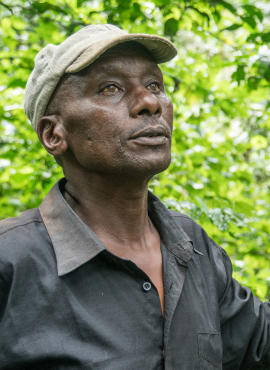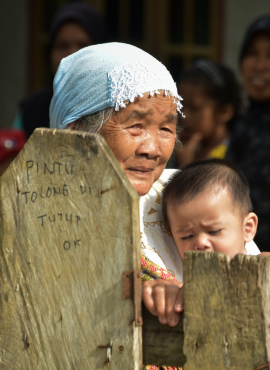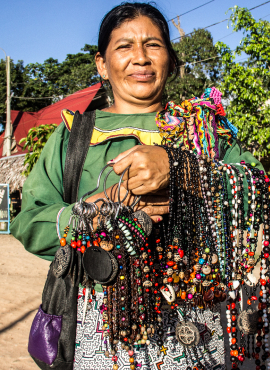Overview of EnABLE
Enhancing Access to Benefits while Lowering Emissions (EnABLE) enhances access to climate finance for underrepresented groups in countries where the World Bank supports emission reductions programs. Activities target historically marginalized and disadvantaged groups, such as Indigenous Peoples, traditional local communities, women, and youth, by providing small grants to local civil society partners who represent these groups or have experience working closely with them.
EnABLE–funded activities are designed to support social inclusion in climate finance initiatives by raising awareness and capacity; expanding and making inclusive decision-making processes and spaces; and, where possible, addressing obstacles in the enabling environment that limit participation. In addition to focusing on Indigenous Peoples (IPs) and traditional local communities (LCs), EnABLE targets vulnerable groups, including women and girls, children and youth, and people living in poverty and with disabilities (collectively, “EnABLE constituencies”).
Governance
EnABLE Steering Committee
The EnABLE Steering Committee provides strategic guidance, endorses workplans and budgets, and reviews progress against the fund’s results framework. It is chaired by the World Bank and includes representatives from donor organizations. The committee meets once a year, with additional technical meetings as needed.
EnABLE Technical Advisory Group
The EnABLE Indigenous Peoples’ Technical Advisory Group (TAG) provides strategic and technical guidance to the fund. It comprises a regionally and gender-balanced group of Indigenous experts with deep experience working with EnABLE's constituencies. TAG members also bring strong knowledge of results-based climate finance and the challenges of designing and implementing inclusive and impactful emission reductions programs. They participate as observers at EnABLE Steering Committee meetings, offering feedback and guidance on behalf of the constituencies they represent.
Global Context
Every year, forests absorb a net 7.6 billion metric tons of CO2 from the atmosphere, acting as vital carbon sinks. Their capacity to sequester carbon is increasingly diminishing, however, due to deforestation and land degradation, which—among other consequences—exacerbate the negative impacts of climate change. In addition to storing carbon, forests are also home to a vast array of biodiversity. They provide essential ecosystem services, such as regulating water flows, preventing soil erosion, and protecting communities from floods and other natural disasters. In many cases, forests are home to culturally rich and diverse Indigenous and traditional local communities whose ties to these (often) ancestral lands and ecosystems run deep.
Through their longstanding stewardship of forests, Indigenous and traditional local communities play a crucial role in conservation. Indigenous and traditional knowledge and sustainable land management practices often align with climate mitigation strategies. Nevertheless, only a small share of their ancestral lands is legally recognized, and forest-dependent groups are often not broadly represented in global climate policy decisions. Integrating Indigenous and local traditional knowledge and expertise into forest conservation initiatives, including REDD+ and other mitigation programs and voluntary carbon market projects, can both ensure these efforts consider cultural heritage and help communities access related benefits, such as land tenure security, biodiversity preservation, climate adaptation strategies, and climate-resilient livelihoods.
Our Approach
EnABLE funding is designed to support local initiatives and encourage innovative programs rooted in sustainable Indigenous knowledge and practices. EnABLE focuses on creating opportunities for target groups to access climate finance directly through their local civil society organizations.
Thematic Priorities
Guiding Principles
Focus
Activities support the capacity of EnABLE constituencies with Indigenous Peoples being a priority to engage in and benefit from emission reductions programs and benefit sharing mechanisms.
Intention
Activities are intended to be carried out by local civil society organizations that represent of have experience working with target stakeholders.
Implementation
Activities are implemented in partnership with local civil society organizations, government agencies, and private sector actors.
EnABLE-Supported Activities
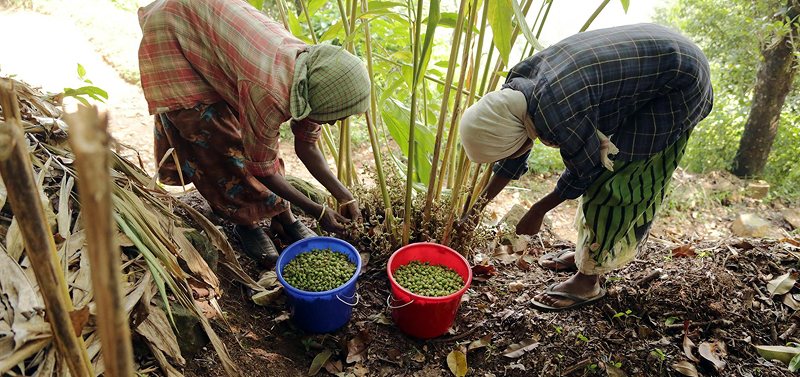
- Creating culturally appropriate and relevant communication materials and strategies to engage target constituencies within emission reductions programs for the purpose of increasing their awareness of both the opportunities and risks presented by results-based climate finance and carbon markets
- Enhancing multistakeholder platforms and fostering partnerships and networks to support engagement in climate change policies,mitigation and adaptation efforts
- Building target constituencies’ technical, financial, and resource-management skills, particularly focusing on their ability to learn about the principles, processes, and terms of carbon financing and to develop, implement, manage, and report effectively on emission reductions programs and benefit sharing arrangements
- Supporting legal and policy frameworks by providing technical assistance to governments and civil society organizations in managing potential negative impacts of transitions and maximizing development outcomes

- Extending grants to relevant civil society and community-based organizations to undertake locally led, scalable initiatives intended to raise awareness of emission reductions programs and benefit sharing plans among target constituencies and build their capacity to engage in and benefit from such programs (examples include supporting meaningful communication, promoting tenure security, implementing community program monitoring systems, and promoting equitable transitions)
- Providing technical assistance and small grants intended to amplify complementary benefits by supporting enabling policy environments and legal frameworks; diversifying skills; piloting activities on sustainable resource management, the adoption and expansion of clean energy sources, and alternative (low-carbon) livelihoods; and building climate and livelihood resilience among targeted communities and groups
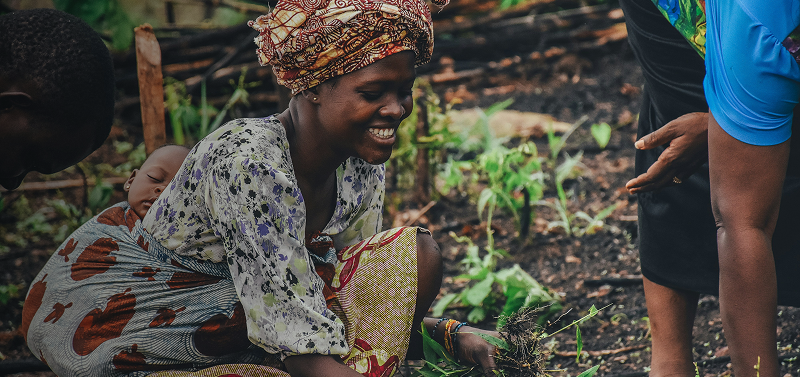
- Supporting the development and management of knowledge needed to design and implement county-specific emission reductions programs informed by the principles of social inclusion and gender equity, including targeted dissemination of knowledge and communications of relevance to the local context
- Supporting Indigenous Peoples, traditional local communities, nongovernment organizations, and other civil society organizations in exchanging insights into and experiences of results-based climate finance, including establishing and supporting peer-to-peer networks within and across regions, along with South-South knowledge exchanges, workshops, and training events.



